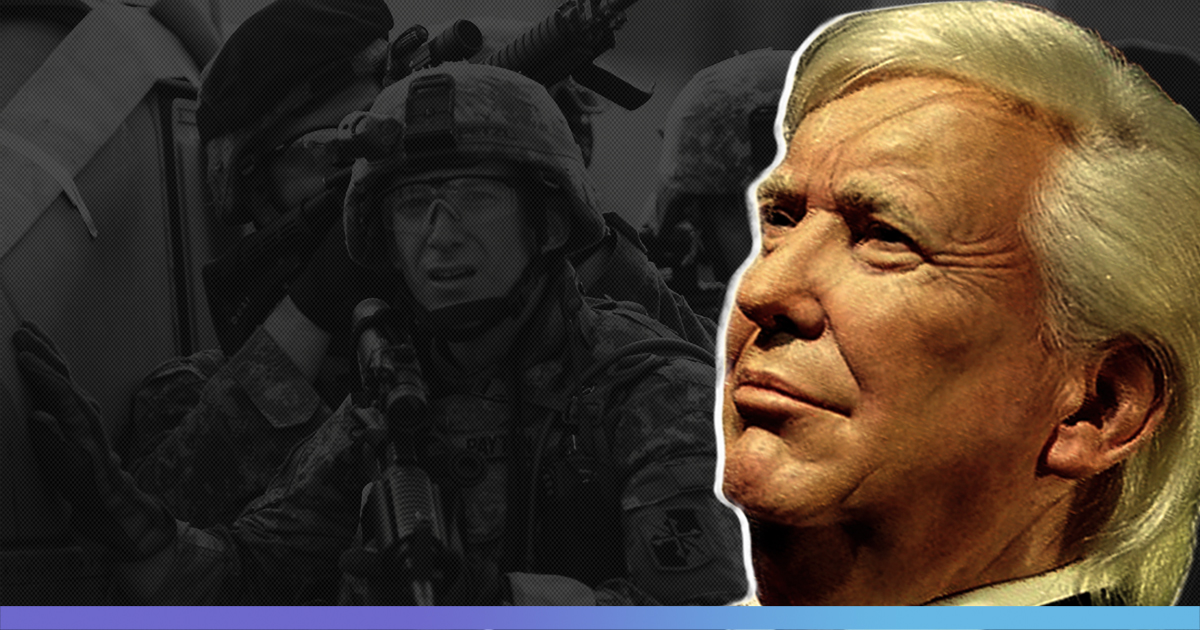Two Mass Shootings Kill 29 In 13 Hrs In US, Debate On US Gun Control Laws Resurfaces
5 Aug 2019 2:46 PM GMT
Editor : Sumanti Sen
Sumanti Sen is an English Literature graduate who believes "there's just one kind of folks. Folks.".
A gunman opened fire in a shopping area packed with thousands of people in the Texas border city of El Paso in the morning of August 3, killing 20 and wounding more than two dozen people, some of them even critically.
Hours later, a gunman wearing body armour and carrying extra magazines opened fire in a popular nightlife area in Dayton, Ohio, killing nine people and injuring at least 26.
Less than a week ago, a 19-year-old gunman killed three people and injured 13 at California’s Gilroy Garlic Festival. He later died of a self-inflicted gunshot wound.
While officers gunned down the Ohio shooter, the El Paso shooter was arrested. Authorities were investigating the El Paso shooting as a possible hate crime, trying to confirm whether a racist, anti-immigrant screed that was posted online shortly beforehand was written by the shooter.
Both the shootings were denounced by President Donald Trump, who said: “hate has no place in our country.”
Gun Control In The US
In most developed countries, gun control is uncontroversial and strict. However, in others, it is often a fraught political issue, a debate among those who believe it is necessary for public safety and those who regard it as a dangerous infringement of one’s own liberty.
Gun control is extremely controversial in the United States. Although gun possession is constitutionally protected, murders and mass murders committed with guns are very common. While proponents argue that limiting access to guns will save lives and reduce criminal activities, opponents say that it would only prevent law-abiding citizens from defending themselves against criminals who are armed.
What also necessarily concerns the gun control debate in the US is the proper interpretation of the Second Amendment to the U.S. Constitution, which reads: “A well regulated Militia, being necessary to the security of a free State, the right of the people to keep and bear Arms, shall not be infringed.”
Keeping in mind the first clause of the amendment (the preamble), until the early 21st century, most US courts had deemed it fit to guarantee the right of individuals to “keep and bear arms” in connection with their service in a state militia or the right of states to maintain militias.
However, in District of Columbia v. Heller (2008), the Supreme Court explicitly recognized for the first time an individual right to use firearms for purposes which are traditionally lawful, including self-defence within the home. After two years, the court held that this was applicable against state and local gun-control laws, and also against federal statutes.
Mass murders are shockingly common in the United States. Incidents like the murder of 49 people in an Orlando nightclub in 2016 and the mass killing of 20 children and six adults in 2012 at an elementary school in Newtown, Connecticut, sent shockwaves through the globe.
Over the last 60 years, there has been a drastic change in US public opinion on the banning of handguns. According to polling by Gallup, a significant majority opposes a ban on handguns now with support having shifted over time.
However, a lot of Americans are not satisfied with the US gun laws and policies, and many of them want stricter legislation. Some controls like restricting the sale of guns to people who are mentally ill are widely supported across political divides.
A survey from Pew Research Center reveals that Republicans and Democrats are more divided over other policy proposals, such as on the rights of ordinary citizens to carry concealed weapons.
The National Rifle Association (NRA), one of the most powerful special interest lobby groups in the US, campaigns against gun controls of all forms, arguing that more guns make the country safer.
Also Read: Just 6 Days After New Zealand Mosque Massacre, PM Jacinda Ardern Bans Assault Rifles
 All section
All section














